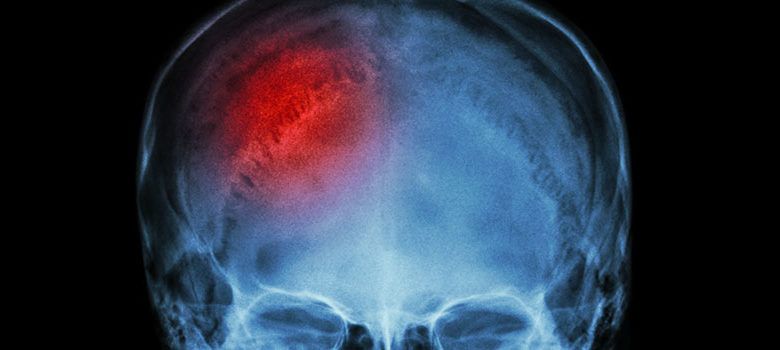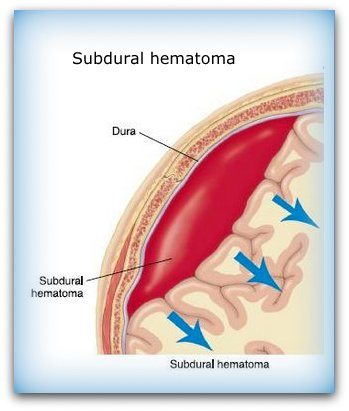

PATIENT STORY: A Subdural Hematoma Strikes
by Guest Author
When blood collects in the skull outside the brain and below the outermost layer of tissue surrounding the brain (dura), a subdural hematoma results. This may occur due to head trauma when it is called an acute subdural hematoma. Chronic subdural hematomas may occur due to aging and the increased fragility of blood vessels. The pooled blood may resolve on its own or may require surgical intervention as development of a subdural hematoma can be a life-threatening condition.

Depending on the rate of bleeding the patient may experience a range of symptoms.
- Immediate loss of consciousness due to severe head injury and excessive bleeding
- Gradual confusion and delayed loss of consciousness after a few days of head trauma due to slower bleeding
- Very slow bleeding results in no noticeable symptoms for more than two weeks after bleeding begins
Symptoms of subdural hematoma can include headache, confusion, change in behavior, dizziness, nausea and vomiting, lethargy or excessive drowsiness, weakness, apathy, and seizures.
Subdural hematomas are generally diagnosed by CT scan or MRI imaging.
* * * * *
Our patient Audrey has shared her experience at Pacific Neuroscience Institute. Please read her story.

No one expects to be told they have bleeding on the brain and need to be rushed to surgery, but that is exactly what happened to me. Looking back on this very serious procedure, I know how fortunate I was that Dr. Garni Barkhoudarian became my neurosurgeon.
In a calm, respectful, professional and caring manner, Dr. Barkhoudarian showed me the MRI and explained the surgical process to my family and me in a compassionate manner. We immediately knew we could trust him, and as it turned out, we trusted him with my life. He is a highly qualified and gifted medical surgeon with a bedside manner that is seldom found in the medical world.
Throughout the surgery and recovery, Dr. Barkhoudarian was available to answer any questions and address any concerns, even when I sent him an email at 11:30 pm.
Quite simply, Dr. Barkhoudarian possesses top professional skills, married with kindness that is rare, if not unseen, in the healthcare industry today. He is a human being first and a doctor second. And when you are having brain surgery, you value this sensitivity more than can be explained.
We are blessed and so very lucky that I ended up in the hands of Dr. Barkhoudarian with his expertise and experience that allowed for full-function in my recovery.
I cannot praise Dr. Barkhoudarian enough for the thoughtful way I was treated before, during and after this intense emergency surgery and for the generosity of time he has given to my entire family.
Audrey
Santa Monica, California

Sharmyn McGraw is a patient advocate, charismatic professional speaker and published author. She has first-hand experience as a Cushing’s disease survivor and often collaborates with nationally-recognized neuroendocrine experts, sharing the speaker’s platform while educating patients and doctors about neuroendocrine hormonal disorders and their impact on our health as a nation. Sharmyn facilitates the largest pituitary patient support group in the country for the Pacific Pituitary Disorders Center at Pacific Neuroscience Institute.

Zara Jethani, MS, MBA, is the marketing director for the Pacific Neuroscience Institute. Her background is in graphic design, molecular genetics research and healthcare marketing.
Last updated: July 11th, 2025